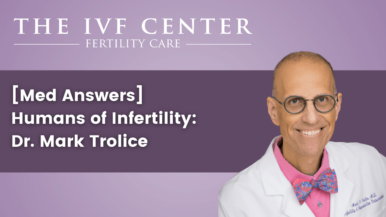When dealing with infertility, particularly in the beginning, it is easy to slip into some common mistakes that can throw you off the right fertility path. Do any of these sound familiar?
We Need to Refrain from Intercourse until Ovulation
 FALSE: Studies show that in order to reach maximum success with conception, couples should increase the number and days of intercourse up to and including the day of ovulation which can be detected using an inexpensive over the counter predictor kit. Couples should not abstain from intercourse to increase sperm counts at ovulation, but perform relations daily (or at least every other day) in order to improve conception attempts prior to ovulation. Abstaining too long can actually decrease sperm quality.
FALSE: Studies show that in order to reach maximum success with conception, couples should increase the number and days of intercourse up to and including the day of ovulation which can be detected using an inexpensive over the counter predictor kit. Couples should not abstain from intercourse to increase sperm counts at ovulation, but perform relations daily (or at least every other day) in order to improve conception attempts prior to ovulation. Abstaining too long can actually decrease sperm quality.
Infertility is Rare
FALSE: The following infertility statistics come directly from the CDC (updated March 2013):
6.7 million women ages 15-44 with impaired fecundity (impaired ability to get pregnant or carry a baby to term). Equalling 10.9% of women ages 15-44 with impaired fecundity.
1.5 million married women ages 15-44 that are infertile (unable to get pregnant after at least 12 consecutive months of unprotected sex with husband). Equaling 6% of married women ages 15-44 that are infertile.
7.4 million women ages 15-44 who have ever used infertility services.
40 and Fertile is the Hot New Trend
COMPLICATED: While conception can certainly be achieved in women who are above age 39, fertility declines with age due to the loss of egg number and quality. As a result, time to conceive is longer and miscarriage is higher as women age. Pregnancy rates begin to decrease usually after age 30. More recently, male fertility decreases in men above age 39 along with increases miscarriage as well as contributions of birth defects and autism.
Playing the Blame Game
WAY COMPLICATED: While having difficulty conceiving, couples experience various degrees of stress and usually handle this issue differently. A serious challenge to a couple’s stability is presuming the problem is with the other. Despite common opinion, the causes of infertility are divided EQUALLY among men and women (40% each, with the other 20% being unexplained). The most common obstacles found in women who have difficulty conceiving are tubal blockage and ovulation disorders. Male infertility is usually first diagnosed by a routine sperm analysis unless there are predisposing factors such as prior treatment of cancer. A counselor experienced in reproductive health can be a valuable resource to couples trying to conceive.
I Should Save Fertility Specialists and IVF as My Last Resorts
FALSE: Studies have demonstrated, the sooner a woman sees a Reproductive Endocrinology and Infertility (REI) specialist, the shorter the time to pregnancy. In women less than 35 years of age, an evaluation is recommended following one year of an inability to conceive when there are no other factors such as abnormal menstrual cycles, prior cancer therapy in the male or female. In women over 35 years of age, an evaluation is recommended following six months of attempts at conception. When a woman is greater than 39 years of age, she should be evaluated after three months of conception attempts. The shorter time to evaluation is due to ovarian aging decreasing fertility rates.
Today, in-vitro fertilization is the most successful treatment option available to patients experiencing infertility. Not only are pregnancy rates significantly higher than fertility medication with artificial (intrauterine) insemination (IUI), clinics can now offer embryo testing for genetic disorders, chromosomal abnormalities such as Down’s syndrome, and family balancing with gender testing all performed while the embryo is in the laboratory preimplantation. Additionally, when excess embryos are available, patients can freeze embryos for future pregnancy attempts and preserve their fertility, i.e. maintain the chronologic and biologic age of the woman’s egg at the time of freezing.






